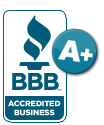2010 was a great year for most structured settlement factoring companies. Record low rates created attractive propositions for annuitants, a struggling economy was a catalyst for more annuitants to sell their annuities, and ample investor funds supported the influx of cases. It was the perfect storm for many of the companies within the industry.
Towards the end of 2011, some structured settlement factoring companies could see their demise.
Below are 5 predictions for the structured settlement factoring industry for the upcoming year.
- Several structured settlement factoring companies will go out of business.
- Courts will deny more transfers.
- Legislation will become stricter.
- Institutional money will be favored over private money.
- Rates will increase, structured settlements will be worth less.
The Beginning to the End of Structured Settlement Factoring
What could cause so many companies to go out of business so abruptly? There are many factors that will lead to the downfall of some companies and eventually the industry in its entirety. Some companies secured institutional financing during a period where rates were at all time lows and transactions were coming through the door left and right.
As a stipulation of the financing, many institutional investors add in a supply clause which creates a penalty for the factoring company if they do not obtain a certain present value in a particular time frame. Some penalties can exceed $2,000,000. As inflation kicks in, rates will rise, increasing discount rates, lowering the price structured settlement factoring companies can pay for structured settlements. This inevitably will lead to less transactions for factoring companies, causing a supply penalty, leading to the downfall of some companies.
As we discussed previously, rates are on the rise which causes structured settlements to be worth less. This author believes rates will increase to a point where 30-50% of cases will be either turned away by factoring companies or judges will deny them due to the best interest standard not being met. Structured settlement annuities are priced to investors at 2 times the rate of other comparable financial products such as a treasury bond. As the treasury bond increases with inflation, structured settlements will soon have investor rates over 10% for the first time since the Bank of the Internet fiasco.
With rates above 10%, annuitants in North Carolina and New York will not be able to cash out their structured settlement payments. In order to have most structured settlement factoring transactions approved, companies will take a cut in commissions in order to have the transaction meet the best interest standard. With high advertising costs, business overhead, less product and less income, some companies may have to close up shop.





